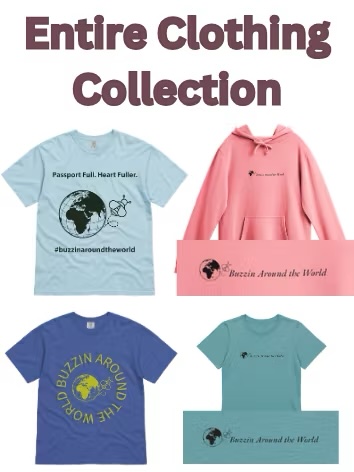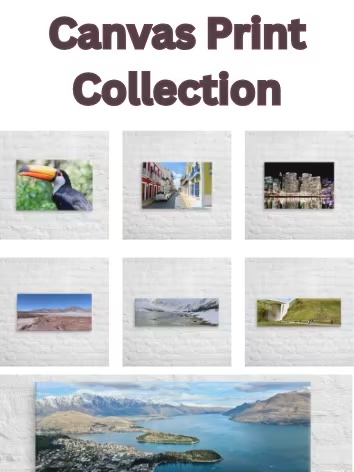How to Visit the Hassan II Mosque

Can Non-Muslims Visit the Hassan II Mosque?
A visit to the Hassan II Mosque is the highlight of a tour of the city of Casablanca, Morocco. One of the questions I had before my visit to Casablanca was, “Can non-Muslims visit the Hassan II Mosque?” The answer is absolutely! Non-Muslims are welcome to visit the Hassan II Mosque for daily tours opposite of the daily Muslim prayer times. As of December 2022, the Hassan II Mosque had guided tours five times a day from Saturday to Thursday, and four times a day on Friday.
During the holy month of Ramadan, tours are limited to three times a day, Saturday to Thursday, and once a day on Friday.
As the Hassan II Mosque is an active place of worship, it is important to make sure that you are dressed appropriately during your visit. Women are not required to cover their hair, but it is recommended as a method of showing respect. Both men and women should wear clothing that covers their shoulders and knees. Shorts are not allowed.
When you enter the Hassan II Mosque, you will be required to remove your shoes. The Mosque supplies a tote bag to carry your shoes.

How to Visit the Hassan II Mosque - Table of Contents
- Can Non-Muslims Visit the Hassan II Mosque?
- About the Hassan II Mosque
- How to Purchase Tickets for a Tour of the Hassan II Mosque
- Walking Around the Exterior of the Hassan II Mosque
- A Guided Tour of the Inside of the Hassan II Mosque
- Tour and Packages that Visit the Hassan II Mosque
- Support Buzzin’ Around the World – Visit Our Affiliates
- Earning Points and Rewards
- Related Content
Disclaimer: Buzzin’ Around the World strives to provide accurate and up-to-date information based on our research at the time of publication. We respect all applicable laws and fair use principles. If you believe any information is incorrect or violates regulations, please contact us at buzzinaroundtheworld@gmail.com.
Affiliate Links and Reviews: We use affiliate links to generate income and may receive a commission at no additional cost to you when you use our links. We strive for honest and transparent reviews, even for products which we receive compensation.
Content Creation: Our content is based on our own travel experiences. All photos are our own unless otherwise stated. We sometimes utilize AI tools to assist with tasks like generating titles, summarizing content, and improving organization.
For more information: For more information, please click HERE to visit our private policy page. We can be reached at buzzinaroundtheworld@gmail.com.
About the Hassan II Mosque
The Hassan II Mosque was built in 1993 under the guidance of Moroccan King Hassan II. Today, the mosque is one of the largest in the world, accommodating 25,000 worshippers inside the mosque and another 80,000 in the mosque’s courtyard. Moroccan Mosques typically have a single minaret with four sides. The Hassan II Mosque’s minaret stands 200 meters tall, making it the second tallest minaret in the world, and emits two laser beams that shine in the direction of Mecca.
In the Koran, it states, “The throne of God was built upon the water.” This quote inspired the Hassan II Mosque to be built overlooking the Atlantic Ocean.

When I researched Hassan II’s rank in size, I found that rankings varied depending on the criteria. Our tour guide said that the Hassan II Mosque was the second-largest in the world after the Grand Mosque in Mecca. I believe that ranking is based on the size of the interior. Other sources have the Hassan II Mosque ranked between 7th and 11th. I believe the 7th to 11th ranking is based on the number of worshippers that the mosque can accommodate throughout its grounds.

How to Purchase Tickets for a Tour of the Hassan II Mosque
One of the questions that I constantly see asked on online travel platforms is, “How do I purchase tickets to the Hassan II Mosque?” During my visit, I was on a guided tour of the city of Casablanca, and admission to the Hassan II Mosque was included in the cost of my tour. When we entered the ticket office, Abdel, our Casablanca tour guide, purchased our tickets while we walked around and looked at examples of Islamic patterns.

For those visiting the mosque on their own, I have a photograph of the entrance prices below. These prices are correct as of December 2022.
The Hassan II Mosque has a hammam (Turkish Bath) located on its grounds. Many of the packages listed include access to the hammam.
For those only interested in the mosque, a one-hour guided tour costs 50 dhs ($13.50). All visitors to the Hassan II Mosque are required to take a guided tour, and the entrance fee includes the guide. This guide was separate from Abdel, our Casablanca city tour guide. The tour guide leading the mosque tours works directly for the Hassan II Mosque.

Walking Around the Exterior of the Hassan II Mosque
After our guide purchased our tickets, we had to walk from the ticket office to the entrance of the Hassan II Mosque. Typically, this walk would pass through the mosque’s courtyard. But because it was raining during my visit to the mosque, we walked under a covered walkway that kept us nice and dry.

As we got closer to the entrance of the Hassan II Mosque, we walked by colorful fountains. The fountains are decorated with Zellij tiles that are unique to the country of Morocco.

The covered walkway is spectacular and consists of arches and some of the same Zellij tiles that decorate the fountains.

When we exited the Hassan II Mosque (after our one-hour guided tour,) the rain had stopped, and the sun was out. I spent around thirty minutes walking around the courtyard and taking photographs of the Hassan II Mosque. The photograph below on the left shows the mosque from the area just past the exit of the ticket office. Below to the right, the photograph shows the view of the courtyard from the exit of the Hassan II Mosque.


The time spent walking around the exterior of the Hassan II Mosque was in addition to the one-hour guided tour. I highly recommend spending some time photographing the mosque from the courtyard. With a keen eye, you will likely take some stunning photos.

In addition to walking around the courtyard, be sure to walk around the exterior of the Hassan II Mosque so you can see the beautiful fountains and Islamic tile artwork.


A Guided Tour of the Inside of the Hassan II Mosque
The highlight of my visit to the Hassan II Mosque was the guided tour of the interior. As stated earlier, this tour was with a separate guide from my Casablanca tour.
Inside the Main Level and Prayer Hall of the Hassan II Mosque
Our tour began inside the prayer hall, which can accommodate 25,000 people. The tour was in English (other languages are available), and there were about 50 people in our group. In the photo below, you can see the green bags that held our shoes.

Our guide spent about fifteen minutes walking us around the main prayer hall. After the guided tour, we had another ten minutes to explore on our own.

Throughout the prayer hall, there were windows on the floor that looked down into the wudu. The wudu area is where Muslims wash their body before praying.

Our guide explained that the windows of the Hassan II Mosque were designed to allow privacy for the people praying inside the mosque. The windows allow light to come through but obstruct the view of the people inside the mosque to anyone attempting to look through the window.

To the side of the main prayer hall, there is additional space for praying. I incorrectly thought that this was where the women prayed. In Islam, women pray separately from men. At the Hassan II Mosque, the prayer area for women is located on the second floor.

Throughout our tour, our guide spent a substantial amount of time talking about the mosque’s Islamic artwork. Muslims do not believe that images of people should be on display inside their mosques. Our guide explained that this is because the prophet Muhammad did not want anyone to worship him as an idol and wanted all of the focus and attention to be on Allah (God).
Because of this, you will never see any images or statues of Muhammad or any of the other prophets of Islam inside a mosque. Instead, mosques are decorated with geometric shapes and Arabic writing. In the sections below, there will be some beautiful examples of Islamic artwork inside the Hassan II Mosque.

On the southwest side of the main prayer hall is the minbar or pulpit. Inside mosques, the minbar is always located facing Mecca. When Muslims pray, they always make sure that they face Mecca.
The minbar is where the Imam leads the prayer and delivers their sermon.

The Ceiling and Walls of the Main Level and Prayer Hall of the Hassan II Mosque
In my opinion, the most spectacular part of the interior of the Hassan II Mosque is the walls and ceiling. The walls of the Hassan II mosque are made of hand-crafted marble and have a mix of geometric shapes and Arabic writing. Almost all of the materials used in construction, including the marble, came directly from Morocco.


Although the marble walls and Arabic writing are spectacular, the domes and ceiling are even more stunning. The photo below shows one of the domes inside the main prayer hall of the Hassan II Mosque. Hanging from the domes are glass chandeliers.

Casablanca, Morocco, has extremely hot temperatures in the summer. To help keep the Hassan II Mosque cool, the ceiling has a retractable roof that can be opened to let the hot air rise up and out of the mosque.

As stated earlier, Islam does not permit the images of people inside their mosques. The ceiling of the Hassan II Mosque is a beautiful example of the Islamic geometric patterns that are commonly found inside mosques.
When the ceiling below opens after sunset, the geometric patterns are replaced by a sky full of stars. In the Koran, it says that God created the sea and the sky. According to our guide, Hassan II wanted worshippers to be able to see the sea and the sky before and after they prayed.

The photo below is zoomed in on the ceiling of the Hassan II Mosque. It is hard to appreciate the detail without seeing the ceiling up close.

In Islam, women and men pray in separate areas. The women’s prayer area is located on the second floor. The golden geometric patterns in the photo below are located just above the walls that block the women’s prayer area from view.

Main Entrance for Muslims
Just outside the main prayer hall is the entrance for non-tourists. This entrance is reserved for people who are entering the mosque for prayer.


After entering the Hassan II Mosque, Muslims will walk through a rotunda with a white dome. We walked through this section on our way to the wudu area of the Hassan II Mosque.

From the rotunda near the main entrance, we walked through an area with carved marble decorations towards the wudu area.


Wudu or Ablution Area - Hassan II Mosque
The last stop on our tour of the Hassan II Mosque was the wudu area or area for ablution. Inside the Hassan II Mosque, there are two separate ablution halls, one for women and one for men. Each hall contains 45 fountains for washing the hands, faces, arms, and feet before praying.

In addition to the 45 fountains are 600 faucets. The faucets are located on the outside walls of the wudu area.

The entire wudu area is decorated with green geometric patterns. After leaving the wudu area, we exited the mosque, and our tour came to an end. We spent just over an hour touring the inside of the mosque.
For anyone visiting Casablanca, I highly recommend visiting the Hassan II Mosque. I learned so much about this beautiful building and the religion of Islam during the tour.


Tour and Packages that Visit the Hassan II Mosque
It is mandatory to have a guide to visit the Hassan II Mosque. You do not need to hire a guide before arriving, as the entrance ticket includes a guided tour. There are tour packages of Casablanca that stop at the Hassan II Mosque. I have linked some of these packages below. Please note that I am an affiliate of Viator. If you purchase a package using one of my links, I will receive a small commission. This commission is at no additional cost to you.
 Casablanca Half-Day Tour: Hassan II Mosque, Mohammed V Square and Central Market - $81.37 Get to know the cultural, historical and economic center of Morocco on this Casablanca sightseeing tour. This 3-hour morning or afternoon coach tour introduces you to the main sights of this old-world city including the Hassan II Mosque, United Nations Place, Mohammed V Square, the Central Market (only on morning tours) and the Royal Palace. Plus enjoy free time to walk along the Ain Diab Corniche and admire the oceanfront scenery. This small-group tour is limited to 18 people, ensuring you’ll receive personalized attention from your guide. |
 Religious Casablanca: Morning Spiritual Tour Including Hassan II Mosque Visit - $86.15 Morocco is a place where multiple religions have co-existed side-by-side for centuries, sometimes even overlapping in traditions and beliefs. Get an overview of the region’s religions on this tour that takes you to some of Casablanca’s holiest sites, and shows how Islam, Judaism, Christianity and other faiths have lived in harmony for hundreds of years. |
 Casablanca Hassan II Mosque and Old Medina Private Tour - $149.57 Explore the cultural, historical and economic center of Morocco on this short tour of Casablanca. Get an overview of the city and its most characteristic areas, Visit the Hassan II mosque including the maze-like streets of the old medina, Scala & Rick's cafe. |
Affiliate Partner of the Month – Fourthwall
Fourthwall powers our brand-new Buzzin’ Around the World Merch Shop. Pick up a tee, hoodie, or sticker. All profits will help me continue to run this site and deliver great content!
Buzzin Around the World's Merch Shop
Want to Launch Your Own Merch Line?
Scroll to the bottom of our Fourthwall page and tap “Start Your Own Store.” That’s a referral link—if you sign up, Fourthwall rewards me with store credit I can use to buy more gear (at no extra cost to you). We only recommend tools we use and love.
Earn $200 in Travel Rewards with the Capital One VentureOne Rewards Card
The Capital One VentureOne Rewards Card is one of the few rewards cards that does not charge an annual fee. Cardholders can earn 1.25 points for every dollar spent while enjoying 0% APR for 15 months.
Currently, Capital One is offering a signup bonus of 20,000 points (worth $200 in travel rewards) when the cardholder spends $500 in the first three months. If you are interested in this card, I would appreciate it if you would sign up with the link below, as I earn a referral bonus of 10,000 points. Those points are worth $100 in travel rewards and will help me continue to bring great content to Buzzin’ Around the World.
Once again, the Capital One VentureOne card is one of the few reward cards without an annual fee and is the perfect card for someone who is just starting to get into the travel points game.
Related Content
High Atlas Mountains and the Sahara Desert
Marrakech
Share this:
- Click to share on X (Opens in new window) X
- Click to share on Facebook (Opens in new window) Facebook
- Click to share on LinkedIn (Opens in new window) LinkedIn
- Click to share on Pinterest (Opens in new window) Pinterest
- Click to share on Tumblr (Opens in new window) Tumblr
- Click to share on WhatsApp (Opens in new window) WhatsApp
- Click to share on Reddit (Opens in new window) Reddit
- Click to print (Opens in new window) Print







